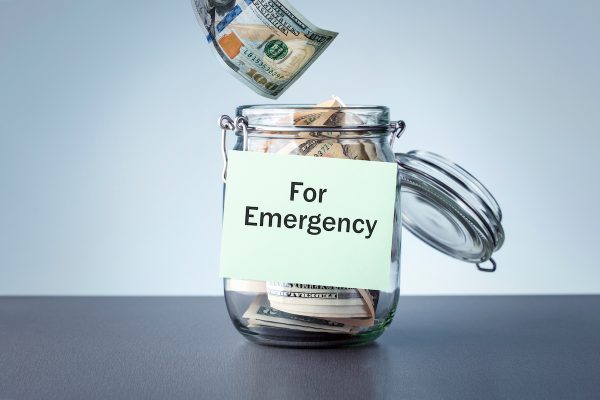

Finance
Emergency Credit Definition
Published: November 17, 2023
Learn the emergency credit definition and how it can help you in times of financial need. Discover the various finance options available to get emergency credit quickly and efficiently.
(Many of the links in this article redirect to a specific reviewed product. Your purchase of these products through affiliate links helps to generate commission for LiveWell, at no extra cost. Learn more)
Emergency Credit Definition: Financial Lifeline in Times of Crisis
Life can be unpredictable, and unexpected expenses can often rear their heads when we least expect them. Whether it’s a medical emergency, a car repair, or a sudden job loss, these financial emergencies can leave us feeling overwhelmed and financially strained. This is where emergency credit comes in handy.
Emergency credit, also known as emergency loans or crisis loans, is a form of short-term borrowing that individuals can access during times of financial crisis. These loans are designed to provide immediate access to cash, helping individuals to cover immediate expenses and bridge the gap until they can stabilize their finances.
Key Takeaways:
- Emergency credit serves as a financial lifeline during unexpected expenses or crises.
- It provides immediate access to cash, helping individuals meet urgent financial needs.
When faced with an unforeseen financial situation, accessing emergency credit can provide temporary relief and peace of mind. Here’s everything you need to know about emergency credit, its benefits, and how to make the most of it:
1. How does emergency credit work?
Emergency credit usually comes in the form of personal loans from financial institutions, credit unions, or online lenders. These loans typically have a quick approval process and the funds are disbursed swiftly, often within a few days. The loan amount can vary based on the lender and individual’s creditworthiness, ranging from a few hundred to several thousand dollars.
2. Benefits of emergency credit:
Accessing emergency credit can have several advantages, including:
- Quick access to funds: Emergency credit provides immediate access to cash, enabling individuals to handle urgent expenses promptly.
- Flexible repayment options: Many lenders offer flexible repayment terms, allowing individuals to repay the loan in installments over a fixed period.
- No collateral required: Most emergency loans are unsecured, meaning borrowers do not need to provide collateral, such as their home or car, as security.
- Improvement of credit score: Responsible usage and timely repayment of emergency credit can positively impact an individual’s credit score, leading to enhanced future borrowing opportunities.
While emergency credit can provide immediate financial relief, it’s important to remember that it is a short-term solution. Borrowers should carefully assess their financial situation and only borrow what they can comfortably repay within the agreed-upon terms.
In conclusion, emergency credit serves as a financial lifeline during times of crisis, offering quick access to funds and helping individuals navigate unforeseen expenses. By understanding the definition and benefits of emergency credit, individuals can make informed decisions and use this financial tool to their advantage when needed.














